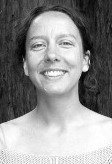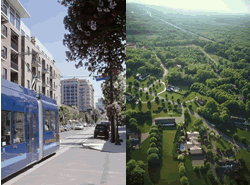A Lunchtime Colloquium at the Rachel Carson Center, Munich
05.06.2014 12:00 – 14:00
Location: Katholische Hochschulgemeinde (KHG), Leopoldstr. 11
Credibility contests about what nature is doing are rarely won by science alone because science is a cultural activity. In Europe’s last low-land old growth forest, the Bialowieza Forest in eastern Poland, which experts do people trust when those experts speak about the compositions of plants and animals that belong there? Which experts have they trusted in the post-socialist era? Intense debates about the ontology of the forest prefigure how the forest can be managed and in this story inflect on the use of radio telemetry and western-produced media. Cultural stories about science help scholars understand the shortcuts people take in interpreting the scientific positions that fit their views as well as political, historical circumstances.
Eunice Blavascunas (College of the Atlantic in Bar Harbour, USA) will present on "Signals in the Forest: Postsocialist Scientific Legitimacy in Poland's Bialowieza Forest."
The Lunchtime Colloquium is free and open to the public.
Snacks are served at 12:00; the lecture starts at 12:30.
For more information on the Lunchtime Colloquium series, please click here.
Credibility contests about what nature is doing are rarely won by science alone because science is a cultural activity. In Europe’s last low-land old growth forest, the Bialowieza Forest in eastern Poland, which experts do people trust when those experts speak about the compositions of plants and animals that belong there? Which experts have they trusted in the post-socialist era? Intense debates about the ontology of the forest prefigure how the forest can be managed and in this story inflect on the use of radio telemetry and western-produced media. Cultural stories about science help scholars understand the shortcuts people take in interpreting the scientific positions that fit their views as well as political, historical circumstances.
Eunice Blavascunas (College of the Atlantic in Bar Harbour, USA) will present on "Signals in the Forest: Postsocialist Scientific Legitimacy in Poland's Bialowieza Forest."
The Lunchtime Colloquium is free and open to the public.
Snacks are served at 12:00; the lecture starts at 12:30.
For more information on the Lunchtime Colloquium series, please click here.

